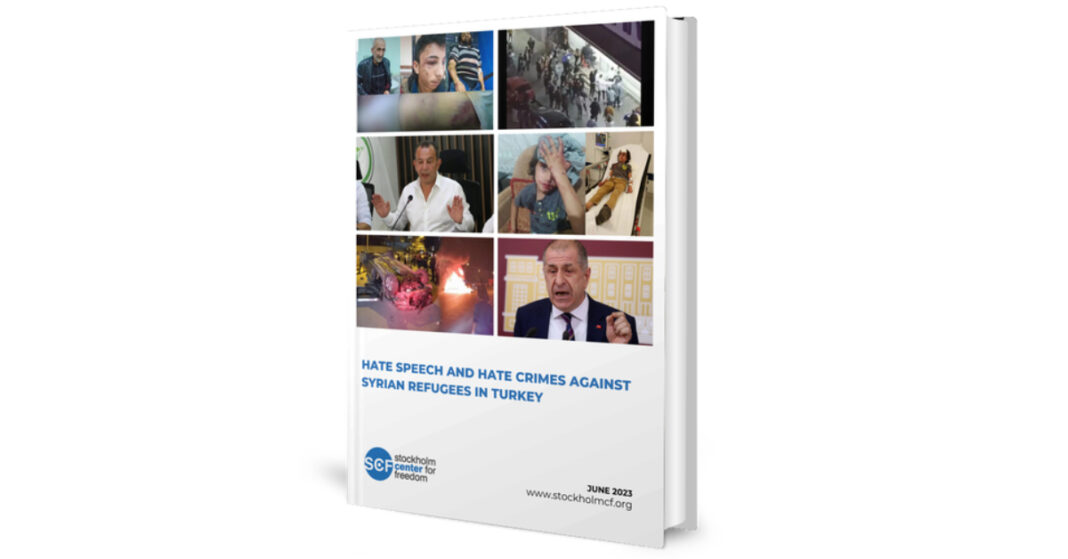A recent report released by the Stockholm Center for Freedom (SCF) examines the inflammatory rhetoric and illegal acts motivated by prejudice faced by refugees who fled the civil war in Syria to take shelter in Turkey.
The report, titled “Hate speech and hate crimes against Syrian refugees in Turkey,” delves into the roots of hate speech and explains how the media and politicians play a role in manipulating the public and sparking fears about refugees in the country.
Discriminatory discourse and hate speech have a long history in Turkey. Since the foundation of the modern Turkish Republic, hate speech has been used in political campaigns. Turkish media has become an important instrument in demonizing migrants and refugee groups, in particular Syrian refugees, by circulating hateful political rhetoric and discriminatory remarks. However, hate crime as a legal term did not appear on the public agenda until the murder of Armenian journalist and activist Hrant Dink in 2007. Since this tragic incident, hate crime has been used and discussed more frequently in the Turkish media and by the general public.
“Hate speech and hate crimes against Syrian refugees have become so normalized in Turkey that nobody even talks about the incidents,” said Dr. Merve R. Kayıkcı, research director at SCF. “Politicians fuel crimes by implementing discriminatory policies and playing the leading role in ‘othering’ Syrians.”
In recent years refugees and minorities have become the groups most targeted by negative political rhetoric and hate speech. In such an environment, Syrians have been at the center of anti-refugee sentiment, expressed in particular on social media and often by political parties. With inflation soaring in recent years, they have been blamed for many of Turkey’s social and economic ills.
While accusations increased as the country’s economy deteriorated, anti-Syrian sentiment among the Turkish public reached a tipping point following massive earthquakes in southern Turkey in February 2023. More alarmingly, anti-refugee and anti-Syrian rhetoric has been picked up by opposition politicians who have resorted to racist and xenophobic speech, thinking they are criticizing the government.
The report discusses the history of xenophobic and discriminatory speech in Turkey and explains how refugees and minorities have become the groups most targeted by negative political rhetoric and hate speech. It then considers the communication tools used for spreading hate speech, the inadequate integration policies for establishing cohesion and the reasons behind the normalization of hate crimes. It then sets out reported cases of hate speech and hate crimes against Syrian refugees. Finally, it concludes with recommendations addressed to the Turkish government, international organizations and EU institutions as well as civil society, rights groups and media outlets.
“The Syrian populations in the provinces hit by the devastating earthquakes have experienced serious problems including mistreatment, hate speech and discrimination. In addition, people who were displaced due to a civil war were once again displaced by the earthquakes,” Kayıkcı said.
About the Stockholm Center for Freedom
SCF is a non-profit advocacy organization that promotes the rule of law, democracy and human rights with a special focus on Turkey.
Committed to serving as a reference source by providing a broad perspective on rights violations in Turkey, SCF monitors daily developments, documents individual cases of the infringement of fundamental rights and publishes comprehensive reports on human rights issues.
SCF is a member of the Alliance Against Genocide, an international coalition working to exert pressure on the UN, regional organizations and national governments to act on early warning signs and take action to prevent genocide.

